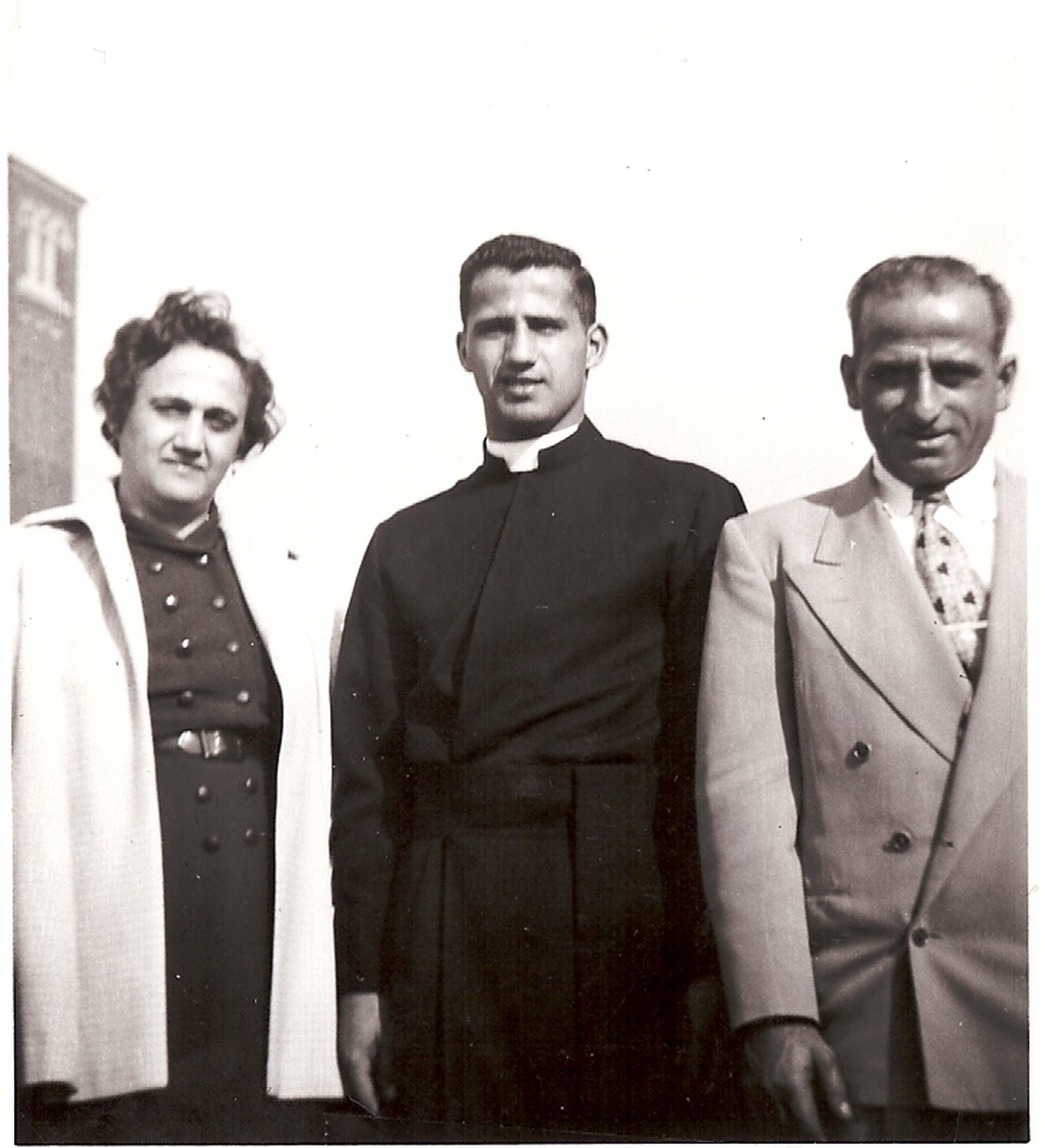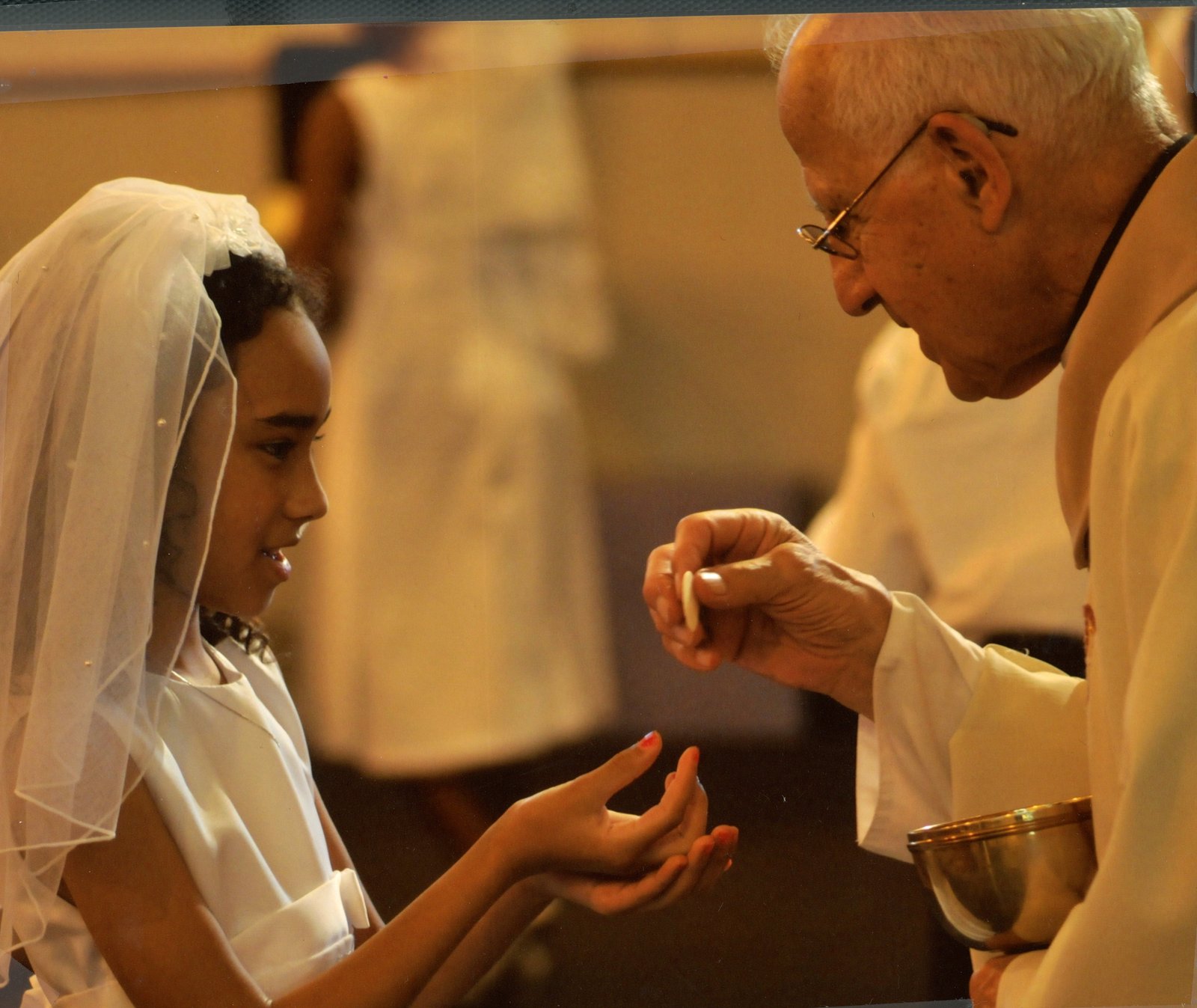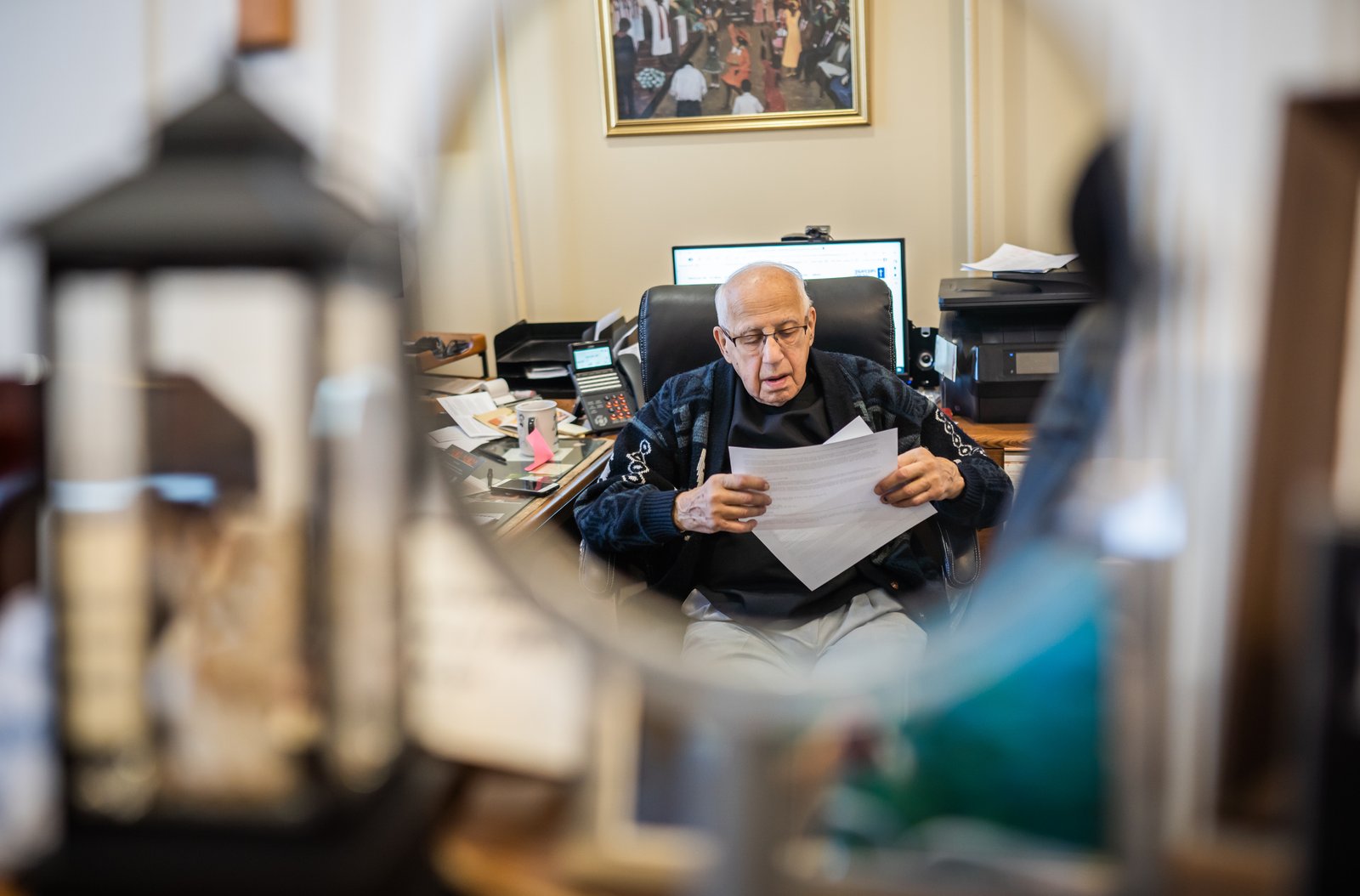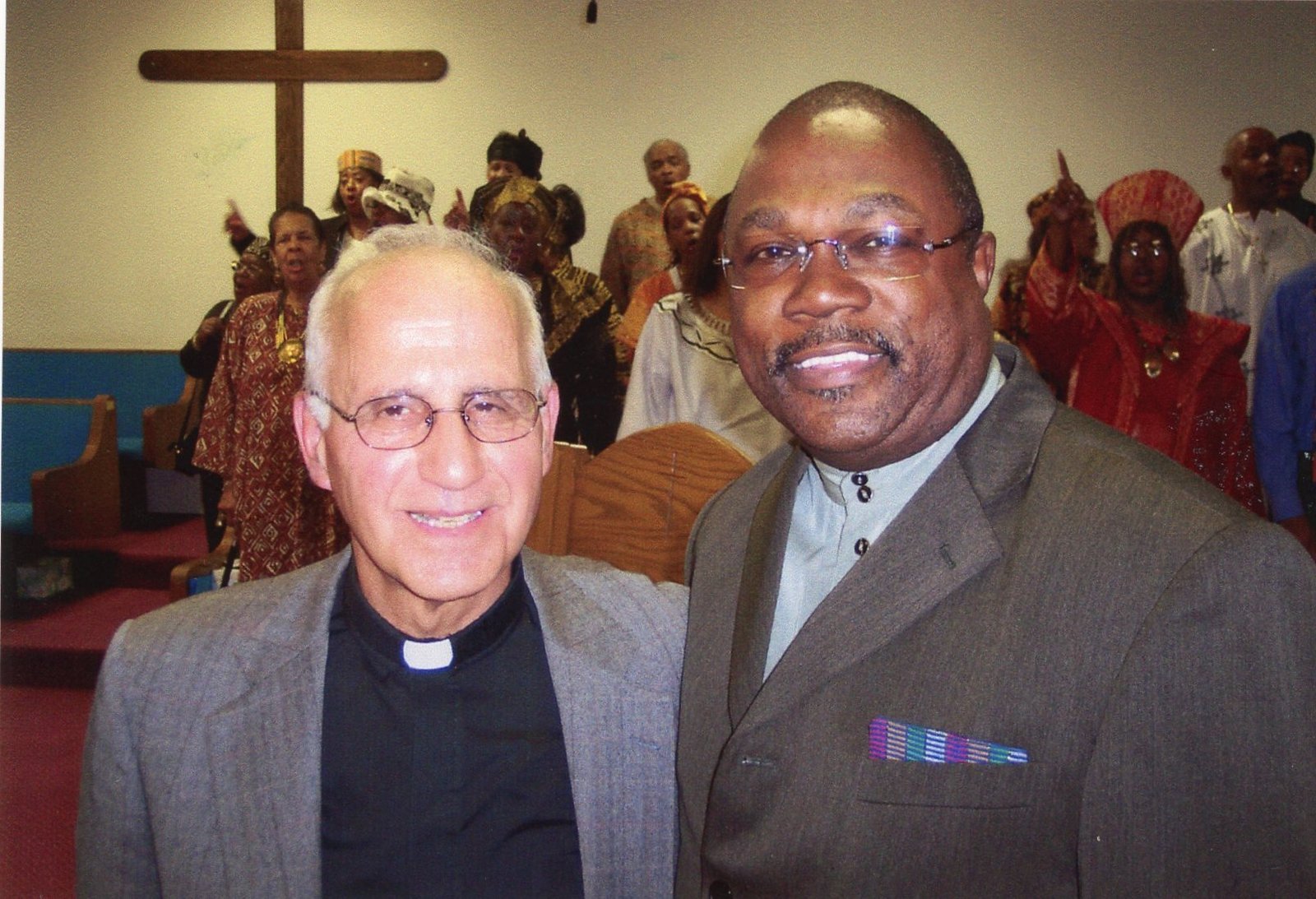Beloved priest served 54 years at Sacred Heart Parish in Detroit's Eastern Market, became known as 'the people's pastor'
DETROIT — Fr. Norman Thomas was always a Detroiter at heart.
For 54 years, he served as pastor of Sacred Heart Parish in Detroit’s Eastern Market, preaching the Gospel of Jesus Christ and fighting for dignity and equality for everyone, whether they be longtime parishioners or homeless neighbors who knew they would always have a friend in Fr. Thomas.
Fr. Thomas was known for his advocacy for the poor, the environment, racial equality and justice, building a reputation that spread far beyond the Detroit Catholic community and earned him the nickname “the people’s pastor.”
“The first time I met Fr. Norman Thomas, I was 6 years old, and my family just came to Sacred Heart,” John Thorne, pastoral associate at Sacred Heart and director of the Detroit Catholic Pastoral Alliance, told Detroit Catholic. “I always had this image of a Black Christ, and to come to this parish and see Jesus being nailed to the cross and he was Black with an Afro, I asked where he got that from. He looked at me and said, ‘This is Jesus, but Jesus is also alive in you.’”
Fr. Thomas passed away Feb. 26. He was 92.
Norman Thomas was born Dec. 18, 1930, in Highland Park and grew up at Madonna Parish in Detroit (now St. Moses the Black Parish).
Thomas graduated from Sacred Heart Seminary High School and College before heading to St. John’s Provincial Seminary in Plymouth. He was ordained a priest by Cardinal Edward A. Mooney of Detroit on June 4, 1955.

After associate pastoral assignments at St. Elizabeth in Wyandotte (1955), St. Michael in Pontiac (1955-59), and St. Mary Magdalene in Hazel Park (1959-63), and serving as the director of urban parish apostolate in the Archdiocese of Detroit, Fr. Thomas received his first and only pastoral assignment at Sacred Heart Parish in 1968.
Detroit was reeling from the 1967 urban unrest, with the city suffering from racial strife and many parishioners leaving the city. It was in this environment that Fr. Thomas arrived at Sacred Heart Parish and turned it into a beacon of Black Catholic life in the city, Thorne said.
“For the past 54 years, almost every social movement that has happened in the city, from worker’s rights to fighting for justice, to church closings and finding ways to engage people on the political scene, he was on every front,” Thorne said. “When he came in 1968, the parish was almost in shambles. Not a lot of people were coming to church, so he made it a point to visit the homes of parishioners who stopped coming to church and turned Sacred Heart into a parish where everyone — no matter who they were — were welcomed.”
Fr. Thomas went to work promoting Black Catholic spirituality, encouraging parishioners to take an active part in worship and managing the day-to-day ministry of the parish, and speaking out for the voiceless. The active priest made sure the church was a church of the people, said Vickie Figueroa, associate director of cultural ministries and coordinator of Black Catholic ministry in the Archdiocese of Detroit.
“Fr. Norman Thomas was a champion of the Black Catholic community and the Black community in Detroit,” Figueroa said. “He embraced, preached and taught the importance of Black Catholic spirituality, which is holistic, prayerful, scriptural and inclusive. It includes walking the word, saying the word, reading the word and being active agents in doing the word through love, justice and hospitality.”
Figueroa said Fr. Thomas leaves behind a legacy of inclusion and encouragement for parishioners to go out into the streets to preach the Gospel by caring for the poor, advocating for justice and fighting for a more equitable world.

“I think the biggest legacy he leaves the parish is inclusiveness in ministry and his advocacy for Black Catholic ministry,” Figueroa said. “He will tell you, when you came to Sacred Heart, no matter what race or gender you are, what walk of life you are from, you are coming to a church that is an African-American church. It is set up that way, run that way, a majority of people in the church are African-American Catholics, because they are the ones with the lived experiences to carry on the message.”
Fr. Thomas was active throughout his ministry, from his younger days playing on a hockey team called the “Flying Fathers,” to traveling to California to advocate for the rights of Hispanic workers, to speaking out against police brutality and systemic racism that could be found both outside and within the Church.
A key aspect of Fr. Thomas’ legacy is the Detroit Catholic Pastoral Alliance, a group founded after 1967 that allowed Catholic pastors across the city to form partnerships to better the social, economic and housing conditions in Detroit and promote Catholic social justice outside the confines of the parish.
“His vision was if the Church was going to meet the needs of the people, it had to be about creating economic opportunities in the city,” Throne said. “It had to look at racism, not just in the community, but also in the Church. People were starting to abandon the neighborhoods where they lived and worshipped. If the Church has a responsibility, it would be in bringing healing in the city, and racial healing in the neighborhoods. The best way to go about that was an organization that would look outward.”

Since the news of his passing, a Facebook page dedicated to Sacred Heart Parish has featured tributes and photos of Fr. Thomas, who in 2007 also became the pastor of St. Elizabeth Parish on Detroit’s east side.
“What gladdens my heart is seeing all these tributes to Fr. Thomas from the Sacred Heart and St. Elizabeth communities,” Thorne said. “It’s amazing to see how much he cared for the people. Even at 90 years old, he still went to community meetings, took on a second parish when their pastor died. He took that whole parish family on, made sure they were his parishioners, too. He wasn’t a step-pastor or made St. Elizabeth some offshoot of Sacred Heart. He gave his heart to St. Elizabeth and everyone who walked in those doors.”
Sacred Heart Parish will host a remembrance Mass on Tuesday, Feb. 28, at 5 p.m.
A public viewing will take place Thursday, March 9, from 9 a.m. to 9 p.m., and Friday, March 10, from 9 a.m. to 9 p.m., with Scripture and Rosary at 6:30 p.m., and Saturday, March 11, from 9 to 10:45 a.m. A funeral Mass will be celebrated Saturday, March 11, at 11 a.m. at Sacred Heart Parish, 1000 Eliot St., Detroit. In lieu of flowers, donations an be made to Sacred Heart for the Norman P. Thomas Educational Scholarship.

People will remember how Fr. Thomas truly cared about the community; he truly cared about Detroit and he truly cared about fighting and forming a more racially just society,” Figueroa said. “He truly cared how the parish followed a completely whole-life ethic in the Black community, from pre-born to natural death, and that includes housing, education, health care disparities, and reintegrating returning citizens.
“He made sure Black people feel included and were included in all walks of the Church,” Figueroa said. “Fr. Norman Thomas made sure Black people had their dignity in the Church.”
Throne reflected on how people could best honor Fr. Thomas' legacy: “Don’t go backward,” he said.
“If we can honor Fr. Thomas and the vision of the city; we can’t go backward,” Throne said. “We have to keep caring for the poor in our society, keep pushing for racial equality in our Church, making sure everyone has a voice and seat in the Church. That the Chancery looks like the Church; that Black leadership is in the Church.
"If anything, Fr. Thomas would never want flowers," Thorne added. "He’d want to make sure people had access to education and that African-American spirituality continued to flow in the Church.”











